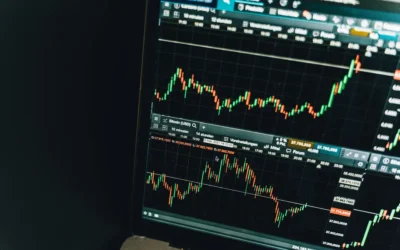When corporations want to raise money, they often turn to investment. Investment bankers work with companies to invest their client’s money in assets (be that shares, bonds, currencies or other commodities like gold) with the aim of maximising profit within a set timeline.
Working as an investment banker, you’ll spend much of your time analysing financial data, managing investment risk and working on financial models to ensure that any investment your bank makes is valuable to the client you’re working with. As you move up in the industry, you’ll also be responsible for building strong relationships with clients and attracting new clients in order to broaden your bank’s portfolio of business.
Investment banking is a very lucrative industry to work in, with lots of opportunities to travel and fairly quick career progression, but it’s also very competitive and can involve extremely long hours. It’s a challenging career path that is certainly not for the faint-hearted, but the rewards can be great.
For those interested in exploring this dynamic field, our online Economics & Finance course offers a comprehensive introduction to key theories in micro- and macroeconomics, equipping you with the foundational knowledge and skills essential for a career in investment banking.
Which Subjects Do You Need to Become an Investment Banker?
To become an investment banker, you’ll need a Bachelor’s degree in a relevant field like finance, accounting or business. Studying for an undergraduate degree at university or pursuing a degree apprenticeship are both popular paths into investment banking.
While investment banks look for a diverse skill set in their employees, there’s a particular focus on mathematical reasoning and ability, so a strong background in A-level maths or equivalent is almost always necessary. Other mathematical-based subjects, such as physics and computer science, can also be beneficial.
If you’re keen to enhance your pre-university learning even further, browse our selection of Mathematics courses and Computer Science programmes.
How Do I Become an Investment Banker?
The two starting positions at an investment bank are analyst and associate, with the latter being a more senior position than the former.
Analysts
To enter at analyst level, you must have a Bachelor’s degree. While graduates of finance, maths or science are particularly common in the field, banks employ graduates from a wide variety of disciplines, from music to English literature. As long as you have a secure mathematical understanding, either from school or from your degree, then you have the skills to become an investment banker.
However, having the right skills and qualifications is only the first hurdle, and landing your first job in investment banking can be a significant challenge. In a highly-competitive industry, it’s very difficult to stand out from the crowd.
Almost all large banks offer summer internships to university students, which can be an excellent way into a graduate role. If the bank is impressed with an intern’s performance over the summer, they’ll often extend a conditional job offer for the future.
Some banks offer ‘Spring Weeks’ to first and second-year university students, offering work experience during the Easter vacation. This can then lead to a summer internship which, in turn, can lead to a graduate placement opportunity. As competition grows for internships, Spring Weeks are becoming increasingly popular as a way to break into the industry.
Associates
In order to enter the bank at associate level, you need a Master’s degree or higher. The most common Master’s degree for investment bankers is a Master of Business Administration, although a postgraduate degree in law or accountancy can be equally desirable.
What Books Can I Read About Investment Banking?
There are a number of excellent reading recommendations for aspiring investment bankers, but here are our top three:
1. ‘The Intelligent Investor‘ by Benjamin Graham. This classic book dives into key investment principles, including risk management and the psychology of market fluctuations, to provide a strong foundational knowledge in long-term investing.
2. ‘Liar’s Poker‘ by Michael Lewis. In this memoir-style book, Lewis recounts his experience as a bond salesman during the 1980s, offering a first-hand insight into the high-stakes world of investment banking.
3. ‘The Big Short: Inside the Doomsday Machine‘ by Michael Lewis. Another title by Lewis, this book explores the events leading up to the 2008 financial crisis, highlighting the real-world consequences of the finance world.

By Oxford Scholastica Academy
The Oxford Scholastica Academy was founded in 2013 by Jamie and Sophie, two former University of Oxford students, who have built a dynamic education company dedicated to empowering young people to chart their path in the world and make it better.





